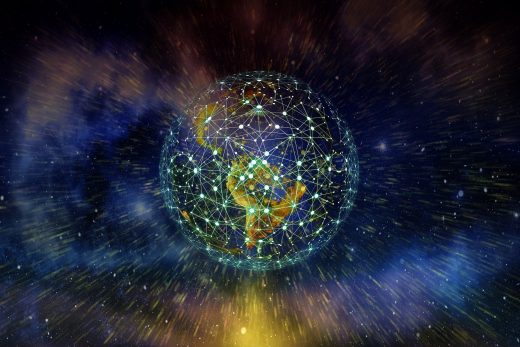17 Goals to Transform Our World
In 2015, countries adopted the 2030 Agenda for Sustainable Development and its 17 Sustainable Development Goals. In 2016, the Paris Agreement on climate change entered into force, addressing the need to limit the rise of global temperatures.
Goal 1: No Poverty

End poverty in all its forms everywhere
More than 700 million people, or 10% of the world population, still live in extreme poverty and is struggling to fulfil the most basic needs like health, education, and access to water and sanitation, to name a few.
Having a job does not guarantee a decent living.
Poverty has many dimensions, but its causes include unemployment, social exclusion, and high vulnerability of certain populations to disasters, diseases and other phenomena which prevent them from being productive. Growing inequality is detrimental to economic growth and undermines social cohesion, increasing political and social tensions and, in some circumstances, driving instability and conflicts. Read more >>
Goal 2: Zero Hunger

It is time to rethink how we grow, share and consume our food.
If done right, agriculture, forestry and fisheries can provide nutritious food for all and generate decent incomes, while supporting people-centered rural development and protecting the environment.
A profound change of the global food and agriculture system is needed if we are to nourish the 815 million people who are hungry today and the additional 2 billion people expected to be undernourished by 2050. Investments in agriculture are crucial to increasing the capacity for agricultural productivity and sustainable food production systems are necessary to help alleviate the perils of hunger. Read more >>
Goal 3: Good Health and Well-Being

Ensure healthy lives and promote well-being for all at all ages
Many more efforts are needed to fully eradicate a wide range of diseases and address many different persistent and emerging health issues.
By focusing on providing more efficient funding of health systems, improved sanitation and hygiene, increased access to physicians and more tips on ways to reduce ambient pollution, significant progress can be made in helping to save the lives of millions. Read more >>
Goal 4: Quality Education

Obtaining a quality education is the foundation to creating sustainable development
In addition to improving quality of life, access to inclusive education can help equip locals with the tools required to develop innovative solutions to the world’s greatest problems.
The reasons for lack of quality education are due to lack of adequately trained teachers, poor conditions of schools and equity issues related to opportunities provided to rural children.
For quality education to be provided to the children of impoverished families, investment is needed in educational scholarships, teacher training workshops, school building and improvement of water and electricity access to schools. Read more >>
Goal 5: Gender Equality

Achieve gender equality and empower all women and girls
Providing women and girls with equal access to education, health care, decent work, and representation in political and economic decision-making processes will fuel sustainable economies and benefit societies and humanity at large.
Implementing new legal frameworks regarding female equality in the workplace and the eradication of harmful practices targeted at women is crucial to ending the gender-based discrimination prevalent in many countries around the world. Read more >>
Goal 6: Clean Water and Sanitation

Ensure access to water and sanitation for all
Due to bad economics or poor infrastructure, millions of people including children die every year from diseases associated with inadequate water supply, sanitation and hygiene.
To improve sanitation and access to drinking water, there needs to be increased investment in management of freshwater ecosystems and sanitation facilities on a local level in several developing countries within Sub-Saharan Africa, Central Asia, Southern Asia, Eastern Asia and South-Eastern Asia. Read more >>
Goal 7: Affordable and Clean Energy

Ensure access to affordable, reliable, sustainable and modern energy
Be it for jobs, security, climate change, food production or increasing incomes, access to energy for all is essential.
Focusing on universal access to energy, increased energy efficiency and the increased use of renewable energy through new economic and job opportunities is crucial to creating more sustainable and inclusive communities and resilience to environmental issues like climate change.
Public and private investments in energy also need to be increased. There needs to be more focus on regulatory frameworks and innovative business models to transform the world’s energy systems. Read more >>
Goal 8: Decent Work and Economic Growth

Promote inclusive and sustainable economic growth, employment and decent work for all
Roughly half the world’s population still lives on the equivalent of about US$2 a day with global unemployment rates of 5.7% and having a job doesn’t guarantee the ability to escape from poverty in many places.
There needs to be increased access to financial services to manage incomes, accumulate assets and make productive investments.
Increased commitments to trade, banking and agriculture infrastructure will also help increase productivity and reduce unemployment levels in the world’s most impoverished regions. Read more >>
Goal 9: Industry, Innovation and Infrastructure

Build resilient infrastructure, promote sustainable industrialization and foster innovation
It has long been recognized that growth in productivity and incomes, and improvements in health and education outcomes require investment in infrastructure.
Technological progress is the foundation of efforts to achieve environmental objectives, such as increased resource and energy-efficiency.
There needs to be more investments in high-tech products that dominate the manufacturing productions to increase efficiency and a focus on mobile cellular services that increase connections between people. Read more >>
Goal 10: Reduced Inequalities

Reduce inequality within and among countries
There is growing consensus that economic growth is not sufficient to reduce poverty if it is not inclusive and if it does not involve the three dimensions of sustainable development – economic, social and environmental.
To reduce inequality, policies should be universal in principle, paying attention to the needs of disadvantaged and marginalized populations. There needs to be an increase in duty-free treatment and continuation of favoring exports from developing countries, in addition to increasing the share of developing countries’ vote within the IMF.
Finally, innovations in technology can help reduce the cost of transferring money for migrant workers. Read more >>
Goal 11: Sustainable Cities and Communities

Make cities inclusive, safe, resilient and sustainable
At their best, cities have enabled people to advance socially and economically. With the number of people living within cities projected to rise to 5 billion people by 2030, it’s important that efficient urban planning and management practices are in place to deal with the challenges brought by urbanization.
Rapid urbanization challenges, such as the safe removal and management of solid waste within cities, can be overcome in ways that allow them to continue to thrive and grow, while improving resource use and reducing pollution and poverty. One such example is an increase in municipal waste collection.
There needs to be a future in which cities provide opportunities for all, with access to basic services, energy, housing, transportation and more. Read more >>
Goal 12: Responsible Consumption and Production

Ensure sustainable consumption and production patterns
Sustainable consumption and production is about promoting resource and energy efficiency, sustainable infrastructure, and providing access to basic services, green and decent jobs and a better quality of life for all.
Since sustainable consumption and production aims at “doing more and better with less,” net welfare gains from economic activities can increase by reducing resource use, degradation and pollution along the whole life cycle, while increasing quality of life.
There also needs to be significant focus on operating on supply chain, involving everyone from producer to final consumer. This includes educating consumers on sustainable consumption and lifestyles, providing them with adequate information through standards and labels and engaging in sustainable public procurement, among others. Read more >>
Goal 13: Climate Action

Take urgent action to combat climate change and its impacts
Climate change is now affecting every country on every continent. It is disrupting national economies and affecting lives, costing people, communities and countries dearly today and even more tomorrow.
Climate change is a global challenge that does not respect national borders. It is an issue that requires solutions that need to be coordinated at the international level to help developing countries move toward a low-carbon economy. Read more >>
Goal 14: Life Below Water

Conserve and sustainably use the oceans, seas and marine resources
The world’s oceans – their temperature, chemistry, currents and life – drive global systems that make the Earth habitable for humankind. Our rainwater, drinking water, weather, climate, coastlines, much of our food, and even the oxygen in the air we breathe, are all ultimately provided and regulated by the sea.
Careful management of this essential global resource is a key feature of a sustainable future.
Marine protected areas need to be effectively managed and well-resourced and regulations need to be put in place to reduce overfishing, marine pollution and ocean acidification. Read more >>
Goal 15: Life On Land

Sustainably manage forests, combat desertification, halt and reverse land degradation, halt biodiversity loss
Deforestation and desertification – caused by human activities and climate change – pose major challenges to sustainable development and have affected the lives and livelihoods of millions of people in the fight against poverty.
There are two international agreements being implemented currently that promote the use of resources in an equitable way. Financial investments in support of biodiversity are also being provided through The Lion’s Share Fund. Read more >>
Goal 16: Peace, Justice and Strong Institution

Promote just, peaceful and inclusive societies
To build a more peaceful, inclusive societies, there needs to be more efficient and transparent regulations put in place and comprehensive, realistic government budgets.
One of the first steps towards protecting individual rights is the implementation of worldwide birth registration and the creation of more independent national human rights institutions around the world. Read more >>
Goal 17: Partnerships for Goals

Revitalize the global partnership for sustainable development
Urgent action is needed to mobilize, redirect and unlock the transformative power of trillions of dollars of private resources to deliver on sustainable development objectives.
Long-term investments, including foreign direct investment, are needed in critical sectors, especially in developing countries. These include sustainable energy, infrastructure and transport, as well as information and communications technologies.
The public sector will need to set a clear direction. Review and monitoring frameworks, regulations and incentive structures that enable such investments must be retooled to attract investments and reinforce sustainable development.
National oversight mechanisms such as supreme audit institutions and oversight functions by legislatures should be strengthened. Read more >>
Transitioning from the MDGs to the SDGs

If you are interested to know more on how to align your business to SDGs or CSR, or simply want to support this media project through sponsorship or collaboration, click here to contact us for further info on collaboration.




1 Response
[…] Sustainable Development Goals (SDGs) are the blueprint to achieve a better and more sustainable future for all. They address the global […]